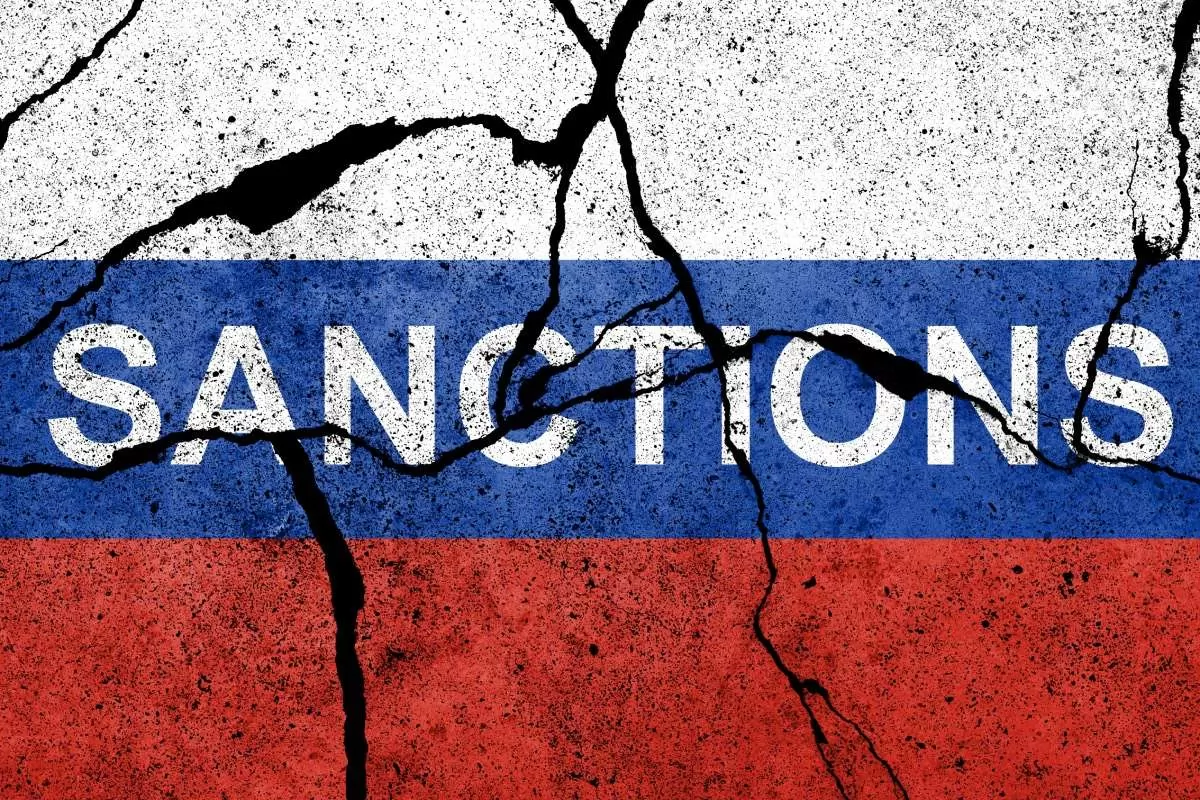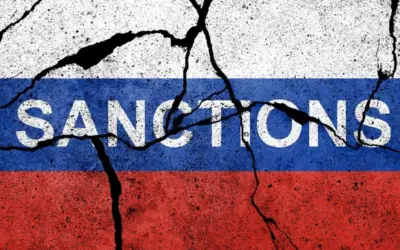The recent introduction of the No-Russia clause requirements in terms of Article 12g of Council Regulation (EU) 2023/2878 of 18 December 2023 has significant implications for EU exporters. This regulation, part of the EU’s 12th package of sanctions against Russia, aims to prevent the circumvention of export bans by ensuring goods exported to third countries do not end up being re-exported to Russia. By including a clause in their contracts that ensures that goods cannot be re-exported to Russia – widely known as a ‘No-Russia clause’ -, EU exporters can and must help prevent their goods from indirectly supporting Russia’s military and industrial capacities.
With the 20 December 2024 deadline to ensure that existing contracts are amended to include the No-Russia clause approaching, let’s take another look at the exact requirements of the regulation, and what they entail.
1. Key Implementation Dates
Before looking at what precisely constitutes the No-Russia clause, it is crucial to understand the timeline for incorporating such a clause into contracts. Here are the key dates to keep in mind in terms of Article 12g:
- All contracts concluded after 19 December 2023 must include the No-Russia clause as of 20 March 2024; and
- all contracts concluded before 19 December 2023 must be amended to include the No-Russia clause by 20 December 2024.
While the deadline to include the No-Russia clause in new contracts has thus come and gone (and new contracts may no longer be concluded without containing this clause), there are still a few months left to ensure that existing contracts concluded before 19 December 2023 are amended to ensure that they include the clause by 20 December 2024.
2. Types of Goods Affected
The regulation applies to the following types of goods:
- Dual-Use Goods and Technology: Items usable for both civilian and military applications, such as advanced electronics, telecommunications equipment, certain software, and machinery.
- Goods and Technology Enhancing Russia’s Military and Industrial Capacities: This includes chemicals, lithium batteries, machine tools, and components used in unmanned aerial vehicles.
- Sensitive Goods and Technology Listed in Annexes XI, XX, and XXXV to Council Regulation (EU) 833/2014: These annexes detail categories of restricted goods like high-performance computing technology, advanced materials, and industrial equipment. Annex XL lists high-priority items for export controls.
EU exporters conducting business with these types of goods should review their goods offerings and consider whether any of these necessitate the inclusion of a No-Russia clause in contracts.
3. No Russia Clause Requirements
In terms of the wording of a No-Russia clause, parties are free to choose what they deem appropriate, as long as the outcome fulfils the requirements of Article 12g. The clause must in any event explicitly ban the re-export of goods to Russia and include appropriate remedies for breaches (such as contract termination and penalties). It must also mandate buyers to implement measures to ensure compliance throughout the supply chain and to report any violations immediately.
Conveniently, the European Commission has issued the following template clause, which can essentially be copy-pasted into relevant contracts:
“(1) The [Importer/Buyer] shall not sell, export or re-export, directly or indirectly, to the Russian Federation or for use in the Russian Federation any goods supplied under or in connection with this Agreement that fall under the scope of Article 12g of Council Regulation (EU) No 833/2014.
(2) The [Importer/Buyer] shall undertake its best efforts to ensure that the purpose of paragraph (1) is not frustrated by any third parties further down the commercial chain, including by possible resellers.
(3) The [Importer/Buyer] shall set up and maintain an adequate monitoring mechanism to detect conduct by any third parties further down the commercial chain, including by possible resellers, that would frustrate the purpose of paragraph (1).
(4) Any violation of paragraphs (1), (2) or (3) shall constitute a material breach of an essential element of this Agreement, and the [Exporter/Seller] shall be entitled to seek appropriate remedies, including, but not limited to:
(i) termination of this Agreement; and
(ii) a penalty of [XX]% of the total value of this Agreement or price of the goods exported, whichever is higher.
(5) The [Importer/Buyer] shall immediately inform the [Exporter/Seller] about any problems in applying paragraphs (1), (2) or (3), including any relevant activities by third parties that could frustrate the purpose of paragraph (1). The [Importer/Buyer] shall make available to the [Exporter/Seller] information concerning compliance with the obligations under paragraph (1), (2) and (3) within two weeks of the simple request of such information.”
4. Penalties for Non-Compliance
Failure to comply with the No-Russia clause requirements can lead to severe penalties, which are typically determined by the national laws of the EU Member States. These may include the immediate termination of the contract as well as substantial fines, which can be a percentage of the contract value or the price of the goods exported, whichever is higher. Article 12g furthermore imposes reporting and information obligations on exporters in the case of breach of No-Russia clause requirements by third-country counterparts.
5. Practical Steps for Compliance
To ensure compliance, here are three key practical steps that can help you meet the No-Russia clause requirements:
- First and foremost, ensure that any existing contracts concluded before 19 December 2023 are amended to include the No-Russia clause by 20 December 2024. While this does require the (sometimes time-consuming) identification of relevant contracts as well as the need to have any amended documents (re)executed, the remaining efforts required should fortunately be relatively limited. This, as the actual amendment to a contract should in essence be limited to copy-pasting the No-Russia clause suggested by the EC into the contract and adjusting it to reflect the terminology and definitions used in the contract.
- Do not forget to include the No-Russia clause in new contracts.
- Consider setting-up and enhancing due diligence and compliance frameworks to prevent the circumvention of the sanctions. This should include implementing monitoring mechanisms and reporting any detected violations promptly.
6. Mitigation Measures
But what if it should simply not be practically possible to amend all of a company’s contracts to include the No-Russia clause by 20 December 2024? While no guarantee can be given that these will be sufficient, there are several actions to try to mitigate the corresponding risks and ensure compliance as soon as possible:
- Prioritize key contracts by focusing on amending the most critical contracts first, such as those involving significant transactions or high-risk goods.
- Consider implementing temporary ‘No Russia’ declarations that third-country buyers must sign before goods are supplied. These declarations can serve as interim measures while formal contract amendments are being processed.
- Engage with EU regulatory authorities to seek possible extensions or exemptions, explaining the practical challenges faced. While this may not always be successful, it demonstrates a proactive approach to compliance.
- Maintain clear and open communication with all stakeholders, including business partners and regulatory authorities, about the steps being taken to comply with the No-Russia clause requirements. This transparency can help mitigate potential conflicts and demonstrate good faith efforts to adhere to the regulation.
By taking these steps, you can better navigate the complexities of compliance and may be able to reduce the risk of penalties.
7. Conclusion
Adhering to the No-Russia clause requirements is essential for EU exporters to avoid penalties and to ensure compliance with the latest sanctions. By understanding the key dates, affected goods, and specific clause requirements, companies can navigate this regulation effectively and maintain their standing within the EU’s legal framework.
Stay informed, be proactive, and ensure that your contracts are up-to-date to comply with the No-Russia clause requirements.
Thoughts, comments or questions? Let me know!
Gundo Haacke, Interim Legal Counsel & Owner of Haacke Commercial Legal Services.
Blog article first published on 31 July 2024.
Image credit: ukranews.com.
Disclaimer
The information provided in this blog article is for general informational purposes only. Nothing contained in this blog article constitutes legal advice, nor is it intended to be a substitute for legal counsel on any subject matter. The author disclaims any liability in connection with the use of this information.




